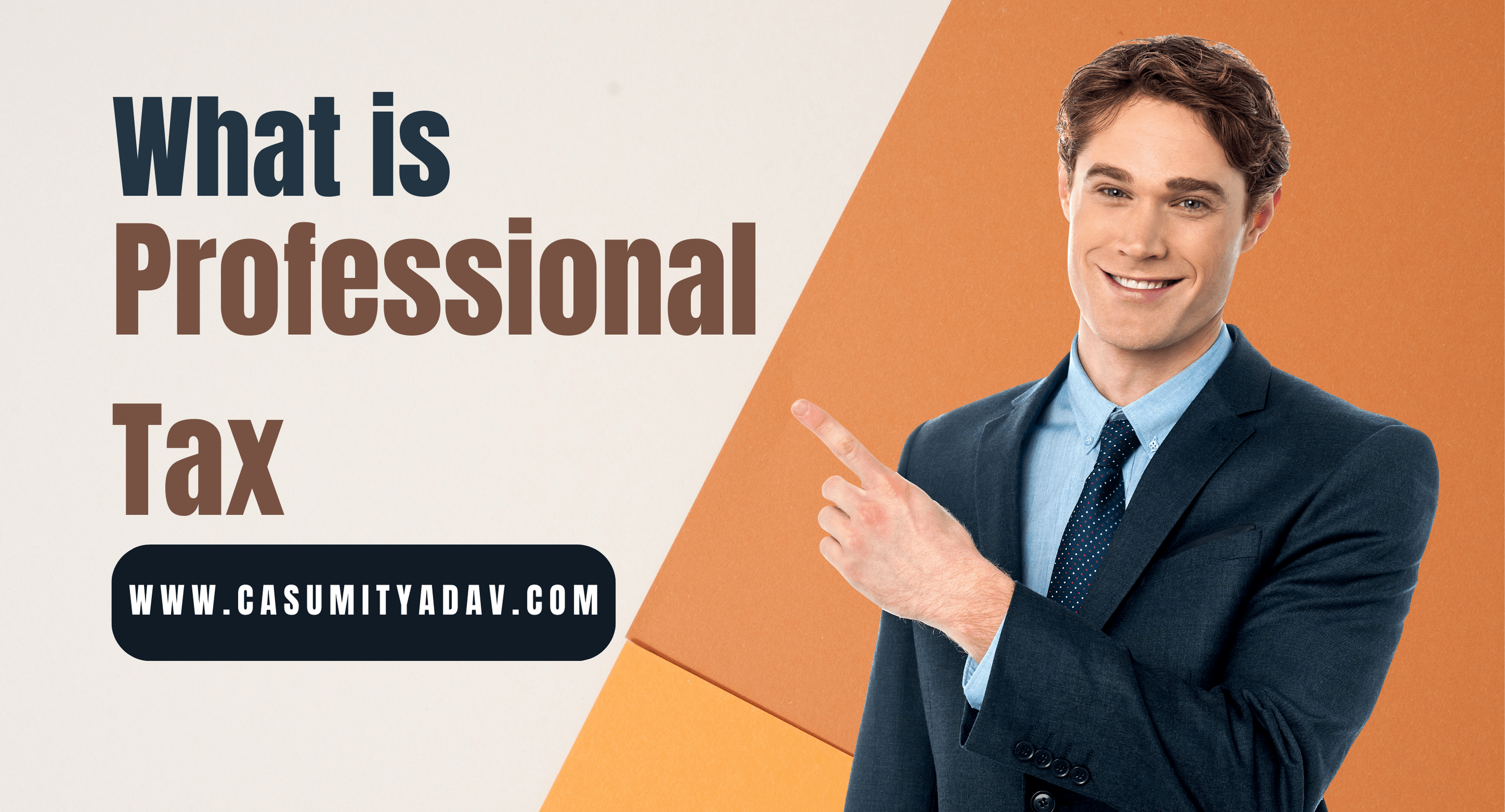What is Professional Tax?
Table of Contents

Introduction
Professional tax is a direct tax that applies to individuals earning an income by way of employment, practising their profession, or trading. A practicing professional includes a lawyer, teacher, doctor, chartered accountant, etc. The tax is deducted from the individual’s monthly salary by their employer and is deposited to the state governments.
Profession Tax Rates in the Key States of India
Profession tax is a direct tax levied by the state governments on individuals who earn income from a profession, employment, trade or calling. The rate of profession tax varies from state to state and depends on the income slab of the person. Here are some of the profession tax rates in the key states of India, as of April 2023:
| State | Income per month | Profession tax per month |
|---|---|---|
| Andhra Pradesh | Up to Rs. 15,000 | Nil |
| Rs. 15,001 to Rs. 20,000 | Rs. 150 | |
| Above Rs. 20,000 | Rs. 200 | |
| Assam | Up to Rs. 10,000 | Nil |
| Rs. 10,001 to Rs. 15,000 | Rs. 150 | |
| Rs. 15,001 to Rs. 25,000 | Rs. 180 | |
| Above Rs. 25,000 | Rs. 208 | |
| Bihar | Up to Rs. 3 lakh per annum | Nil |
| Rs. 3 lakh to Rs. 5 lakh per annum | Rs. 1,000 | |
| Rs. 5 lakh to Rs. 10 lakh per annum | Rs. 2,000 | |
| Above Rs. 10 lakh per annum | Rs. 2,500 | |
| Gujarat | Up to Rs. 5,999 | Nil |
| Rs. 6,000 to Rs. 8,999 | Rs. 80 | |
| Rs. 9,000 to Rs. 11,999 | Rs. 150 | |
| Above Rs. 12,000 | Rs. 200 |
Who pays the professional tax?
Professional tax is paid by individuals who earn income from a profession, employment, trade or calling. The tax is levied by the state governments and varies from state to state. The tax is deducted and remitted by the employer in case of salaried employees, and self-paid by self-employed individuals or professionals. Some categories of people may be exempt from paying professional tax based on state-specific criteria. For example, in Maharashtra, women earning up to Rs. 10,000 per month are exempt from professional tax. I hope this answers your question.
The major Indian States and Union Territories Which Do Not Levy Professional Tax
There are several Indian states and union territories that do not levy professional tax. These include:
1. Arunachal Pradesh
2. Manipur
3. Mizoram
4. Nagaland
5. Sikkim
6. Tripura
7. Andaman and Nicobar Islands
8. Dadra and Nagar Haveli
9. Daman and Diu
10. Lakshadweep
Maximum Professional Tax Amount
Exemption from Professional Tax
Professional tax is a tax on all kinds of professions, trades, and employment and is levied based on the income of such profession, trade and employment. It is levied by the state government and is different in different states. Every state has its own laws and regulations to govern the professional tax of that particular state.
Some individuals are exempt from paying professional tax, such as:
- Parents or guardians of children with a mental disability or permanent physical disability
- An individual suffering from a permanent physical disability including blindness
- Any individual above 65 years of age
- Foreign employees
- Individuals who run educational institutions that teach classes up to twelfth standard
- Individuals in the Central Para Military Force (CPMF)
- An individual who has one child and has undergone a sterilization operation
- Any ex-serviceman who comes under SI. No.1 (Schedule)
- Any handicapped individual who has at least a 40% disability
- Individuals who have a permit for a single three-wheeler or a single taxi to carry goods
- Deaf, dumb, and blind individuals who are earning a salary
- Civilian non-combatant and combatant members who are part of the Armed Forces
- Foreign technicians who have been employed by the state
- All philanthropic and charitable hospitals that are present in places that come below taluk level
